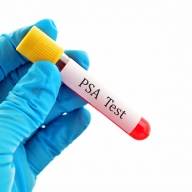It’s Time to Talk About Prostate Cancer
From an article by
Dr. Robert Glinski
McLeod Urology Associates
Nearly 192,000 cases of prostate cancer are diagnosed in the United States each year. It is the most common cancer diagnosed in men except for skin cancer.
“There is good news for men,” says McLeod Urologist Dr. Ronald Glinski. “Thanks to early screening and treatment advances, the death rate from prostate cancer dropped by more than half from 1993 to 2007.”
The prostate is a gland found only in males that sits below the bladder, in front of the rectum, and wraps around the urethra
SCREENING
The American Cancer Society (ACS) recommends that men have a chance to make an informed decision with their health care provider about whether to be screened for prostate cancer. ACS adds that the discussion about screening should take place at:
- Age 50 for men who are at average risk of prostate cancer and are expected to live at least 10 more years.
- Age 45 for men at high risk of developing prostate cancer. This includes African Americans and men who have a first-degree relative (father or brother) diagnosed with prostate cancer at an early age (younger than age 65).
- Age 40 for men at even higher risk (those with more than one first-degree relative who had prostate cancer at an early age).
Prostate cancer can often be detected using a simple blood test called a prostate-specific antigen (PSA) test and a physical exam. Most men without prostate cancer have PSA levels under 4 nanograms per milliliter (ng/mL) of blood. When prostate cancer develops, the level usually goes above 4, but a level below 4 does not guarantee that a man does not have cancer. If your PSA level is high, and/or your prostate exam is normal, a doctor may advise repeating the test or performing a prostate biopsy to find out if cancer is present. Factors such as your age, race, and family history, may affect this decision.
TREATMENT
With the help of genetic testing, many patients’ condition can be monitored closely and may not require initial active treatment. Other options include radiation therapy, surgical removal, or a combination of both.
One of the most advanced treatment options for prostate cancer is minimally invasive robotic urologic surgery, also known as robotic prostatectomy. The surgeon controls the robot, viewing the operating area though High-Definition, 3-D imagery that provides greater magnification and improved visualization and precision than traditional surgical techniques. For the patient, the robotic approach provides less pain, smaller blood loss, and a quicker recovery time.
ACTION YOU CAN TAKE
Not all prostate problems are signs of cancer. An enlarged prostate can cause decreased urinary flow, sudden urgency to urinate, greater frequency of urination at night, post-void dribbling, the sensation of not completely emptying the bladder after urination, or the inability to void at all, known as urinary retention.
To pinpoint your problem and determine the right treatment for you, see a Urologist.
Find a Urologist near you.
-
McLEOD REGIONAL MEDICAL CENTER FLORENCE
843-777-2000 -
McLEOD DARLINGTON
843-777-1100 -
McLEOD DILLON
843-774-4111 -
McLEOD LORIS
843-716-7000 -
McLEOD SEACOAST
843-390-8100 -
McLEOD CHERAW
843-537-7881 -
McLEOD CLARENDON
803-433-3000



-
McLEOD REGIONAL MEDICAL CENTER FLORENCE
843-777-2000 -
McLEOD DARLINGTON
843-777-1100 -
McLEOD DILLON
843-774-4111 -
McLEOD LORIS
843-716-7000 -
McLEOD SEACOAST
843-390-8100 -
McLEOD CHERAW
843-537-7881 -
McLEOD CLARENDON
803-433-3000
 Find a Doctor
Find a Doctor  Locations
Locations  Services
Services 